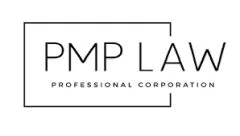Concussions are one of the most common types of traumatic brain injuries (TBIs) and can have significant, long-lasting effects on a person's physical, cognitive, and emotional well-being. Often referred to as "mild" TBIs, concussions are anything but mild for those who suffer persistent symptoms. In Ontario, if you've sustained a concussion due to someone else's negligence—such as in a car accident, slip and fall, or sports incident—you may be entitled to compensation. At PMP Law, we help concussion victims navigate the complex legal process to secure the justice and support they need. In this blog post, we explore what concussions are, their impact, the legal framework for claims in Ontario, and how our team can assist you.
What is a Concussion?
A concussion is a type of traumatic brain injury caused by a blow to the head or a sudden jolt that causes the brain to move within the skull. This movement can disrupt normal brain function, leading to a range of symptoms. Concussions commonly occur in:
- Car Accidents: Whiplash or head impacts can cause concussions.
- Slip and Falls: Falling and striking the head on a hard surface can result in brain trauma.
- Sports Injuries: Contact sports like hockey, soccer, or football are frequent causes.
Symptoms of a concussion may include headaches, dizziness, confusion, memory problems, sensitivity to light or noise, and mood changes. While many people recover within weeks, some experience post-concussion syndrome, where symptoms persist for months or even years, significantly affecting daily life.
Concussions and Ontario Personal Injury Law
In Ontario, concussion claims are governed by laws such as the Insurance Act for motor vehicle accidents, and the Occupiers' Liability Act for premises-related injuries.
To succeed in a claim, you must prove:
- Negligence: The at-fault party (e.g., a driver, property owner, or employer) failed to act with reasonable care, causing the accident.
- Causation: The accident directly caused your concussion.
- Damages: You suffered losses, such as medical expenses, lost income, or pain and suffering, due to the injury.
Challenges in Concussion Claims
Concussion claims are particularly challenging due to:
- Invisible Injury: Concussions often don't appear on standard imaging like CT scans or MRIs, making diagnosis reliant on subjective symptoms and specialized testing.
- Delayed Symptoms: Symptoms may not emerge immediately, complicating the link between the accident and the injury.
- Disputed Severity: Insurers frequently downplay concussions as "minor" injuries, even when symptoms persist.
- Post-Concussion Syndrome: This can lead to chronic issues like cognitive impairment or depression, but proving these long-term effects requires expert reports.
- Pre-Existing Conditions: Insurers may argue that your symptoms stem from prior injuries or unrelated health issues.
These challenges highlight the need for experienced legal representation to build a compelling case supported by medical and expert evidence.
Types of Compensation Available
- Medical Expenses: Costs for doctor visits, diagnostic tests, physiotherapy, or cognitive therapy.
- Lost Income: Wages lost due to time off work and reduced earning capacity.
- Pain and Suffering: Non-pecuniary damages for physical discomfort, emotional distress, and loss of enjoyment of life.
- Out-of-Pocket Expenses: Costs for medications, travel to appointments, or assistive devices.
- Future Care Costs: Ongoing treatment for post-concussion syndrome, such as neurological or psychological care.
- Family Claims: Under the Family Law Act, family members may claim for loss of care, guidance, or companionship.
The amount of compensation depends on the severity and duration of your symptoms, the impact on your life, and the strength of your evidence.
Steps to Take After a Concussion
To protect your rights after a suspected concussion:
- Seek Medical Attention Immediately: Visit a doctor or hospital, even if symptoms seem mild, to document the injury and begin treatment.
- Follow Treatment Plans: Attend all recommended appointments, such as with neurologists or concussion specialists, to support your recovery and claim.
- Document the Accident: Collect evidence like photos, witness statements, or police reports to establish liability.
- Track Symptoms and Losses: Keep a journal of your symptoms and save receipts for medical bills, lost wages, or other expenses.
- Consult a Lawyer: Contact a personal injury lawyer as soon as possible to evaluate your case and meet deadlines.
How PMP Law Can Help
Concussion claims require a deep understanding of both medical and legal complexities. At our personal injury law firm, we take the following steps to strengthen your case:
- Comprehensive Investigation: We gather accident reports, witness statements, and other evidence to prove liability.
- Medical Collaboration: We work with neurologists, neuropsychologists, and concussion specialists to document the extent and impact of your injury.
- Maximizing Compensation: We calculate all current and future losses to ensure your award accounts for the deductible and reflects your needs.
- Negotiating with Insurers: We advocate for a fair settlement, countering attempts to undervalue your claim.
- Court Representation: If a settlement isn't possible, we represent you in court to seek maximum compensation.
- No Upfront Fees: We work on a contingency fee basis, meaning you pay nothing unless we recover compensation.
The content of this article is intended to provide a general guide to the subject matter. Specialist advice should be sought about your specific circumstances.


